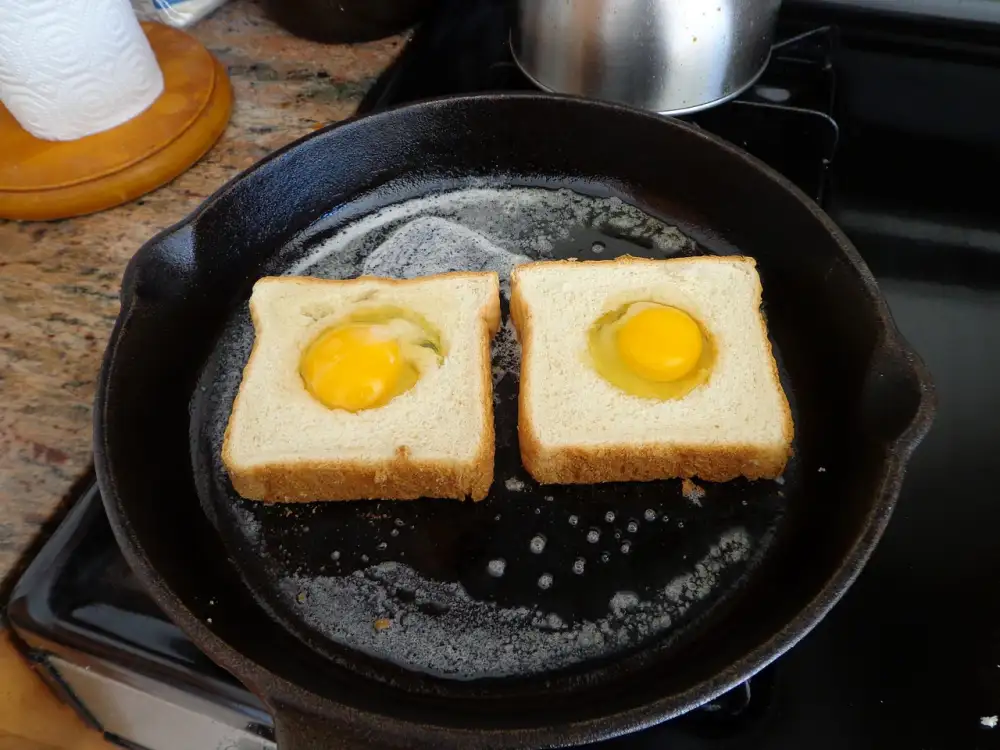Master the Art of Cleaning Your Cast Iron Skillet: Essential Tips for a Pristine Home Kitchen

A cast iron skillet is a beloved kitchen tool that has been passed down through generations. Its ability to distribute heat evenly and retain it for a long time makes it perfect for searing, frying, and baking. However, in order to maintain its longevity and performance, proper cleaning is essential. Cleaning your cast iron skillet not only removes food residue but also prevents the build-up of bacteria and rust. In this article, we will guide you through the steps to master the art of cleaning your cast iron skillet, ensuring a pristine home kitchen and delicious meals for years to come.
Gather necessary supplies for cleaning
To clean your cast iron skillet effectively, it is essential to gather the necessary supplies beforehand. Having these items on hand will make the cleaning process much easier and more efficient. Here are the supplies you will need:
1. Scrub brush or sponge: Choose a brush or sponge specifically designed for cleaning cast iron to avoid scratching the surface.
2. Mild dish soap: Look for a gentle dish soap that does not contain harsh chemicals or fragrances, as these can strip away the skillet's seasoning.
3. Coarse salt or baking soda: These natural abrasives can help remove stubborn food particles without damaging the skillet's surface.
4. Paper towels or clean cloth: Use these to wipe away excess oil and moisture during the cleaning process.
5. Hot water: Make sure you have access to hot water for rinsing and washing your skillet thoroughly.
By gathering these supplies in advance, you'll be well-prepared to tackle any grime or residue on your cast iron skillet with ease and care.
Preparing the cast iron skillet for washing
Before you begin the process of cleaning your cast iron skillet, it is important to properly prepare it. Start by allowing the skillet to cool completely after use. Never attempt to clean a hot skillet as this can cause injury. Once cooled, remove any excess food particles or debris using a stiff brush or scraper. Be careful not to scrub too vigorously as this can damage the seasoning of the skillet. Next, rinse the skillet under warm water to remove any remaining residue. Avoid using soap at this stage as it can strip away the seasoning. Gently wipe the skillet with a cloth or sponge to ensure it is free from any leftover food particles. Now your cast iron skillet is ready for its proper cleaning process.
Cleaning the cast iron skillet using gentle methods
Cleaning the cast iron skillet using gentle methods is crucial to maintain its seasoning and prevent damage. Avoid using harsh chemicals or abrasive scrubbers that can strip away the skillet's natural non-stick surface. Instead, opt for a gentle dish soap and warm water. Use a soft sponge or brush to gently scrub away any food residue. For stubborn stains, create a paste with coarse salt and water and gently scrub the affected area. Remember to rinse the skillet thoroughly and dry it immediately to prevent rusting.
Drying and seasoning the cast iron skillet for optimal maintenance
After cleaning your cast iron skillet, the next step is to ensure it is dried thoroughly. This is crucial to prevent any moisture from causing rust. Start by using a clean towel or paper towels to remove as much water as possible from the surface of the skillet. Make sure to dry both the inside and outside thoroughly.
Once you have removed most of the moisture, place the skillet on a stovetop burner set to low heat. Allow it to heat up for a few minutes, which will help evaporate any remaining moisture. This step also helps open up the pores of the cast iron, allowing it to absorb oil more effectively during seasoning.
After heating, remove the skillet from the heat and let it cool down completely. Once cooled, apply a thin layer of vegetable oil or melted shortening all over the skillet's surface. Use a paper towel or cloth to spread the oil evenly, making sure not to leave any excess oil pooling in one area.
Next, place the skillet upside down in an oven preheated to 350°F (175°C). This allows any excess oil to drip off and prevents pooling during seasoning. Place a sheet of aluminum foil on the bottom rack of your oven to catch any drips.
Let the skillet bake in the oven for about an hour. This process will help polymerize the oil onto the surface of your cast iron, creating a natural non-stick coating and enhancing its durability.
Once done, turn off the oven and let your skillet cool down inside before removing it. The result should be a beautifully seasoned cast iron skillet that is ready for use again.
Remember, proper drying and seasoning are essential for maintaining your cast iron skillet's longevity and performance. By following these steps regularly after each use, you'll ensure that your beloved kitchen tool stays in pristine condition for years to come.
Storing the cast iron skillet properly to prevent rust
Storing your cast iron skillet properly is crucial to prevent rust and maintain its longevity. After cleaning and drying your skillet, make sure it is completely cool before storing. Avoid stacking other pots or pans on top of it, as this can cause scratches and damage the seasoning. Instead, place a paper towel or cloth between the skillet and any other cookware to provide a protective barrier. Store your skillet in a dry place with good air circulation to prevent moisture buildup. If you have limited space, consider hanging your skillet using a sturdy hook or placing it on a shelf with enough room to avoid contact with other items. By storing your cast iron skillet with care, you ensure that it will be ready for many more delicious meals in the future.
In conclusion, mastering the art of cleaning your cast iron skillet is not just about maintaining a pristine home kitchen, but also about showing love and care for this timeless cooking tool. A well-maintained cast iron skillet can last for generations, becoming a cherished heirloom that carries with it the memories of countless delicious meals shared with loved ones. So, take the time to gather the necessary supplies, prepare and clean your skillet gently, dry and season it properly, and store it with care to prevent rust. Treat your cast iron skillet with the same love and attention you give to every dish you cook in it, and it will reward you with a lifetime of culinary joy.
Published: 29. 12. 2023
Category: Home



